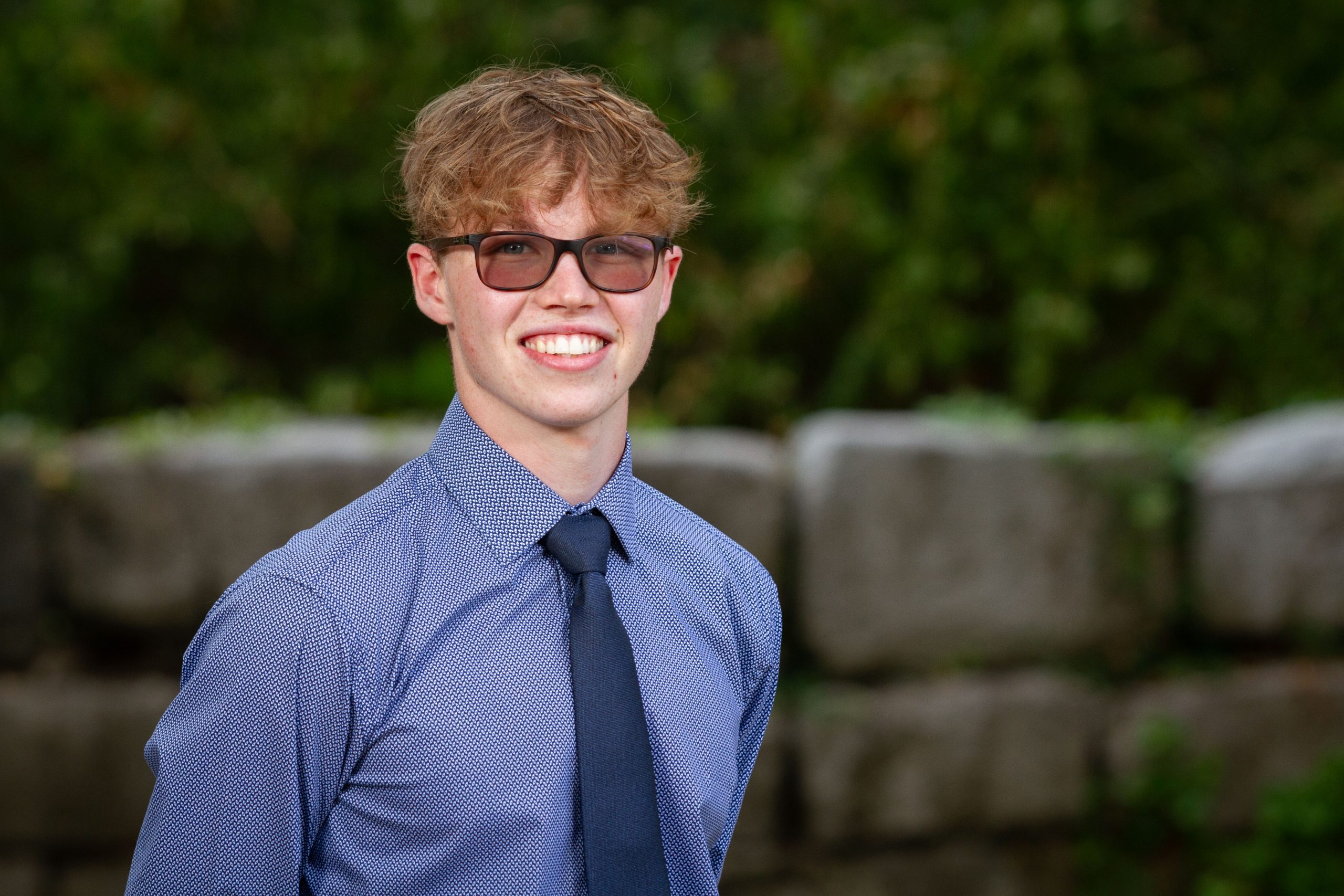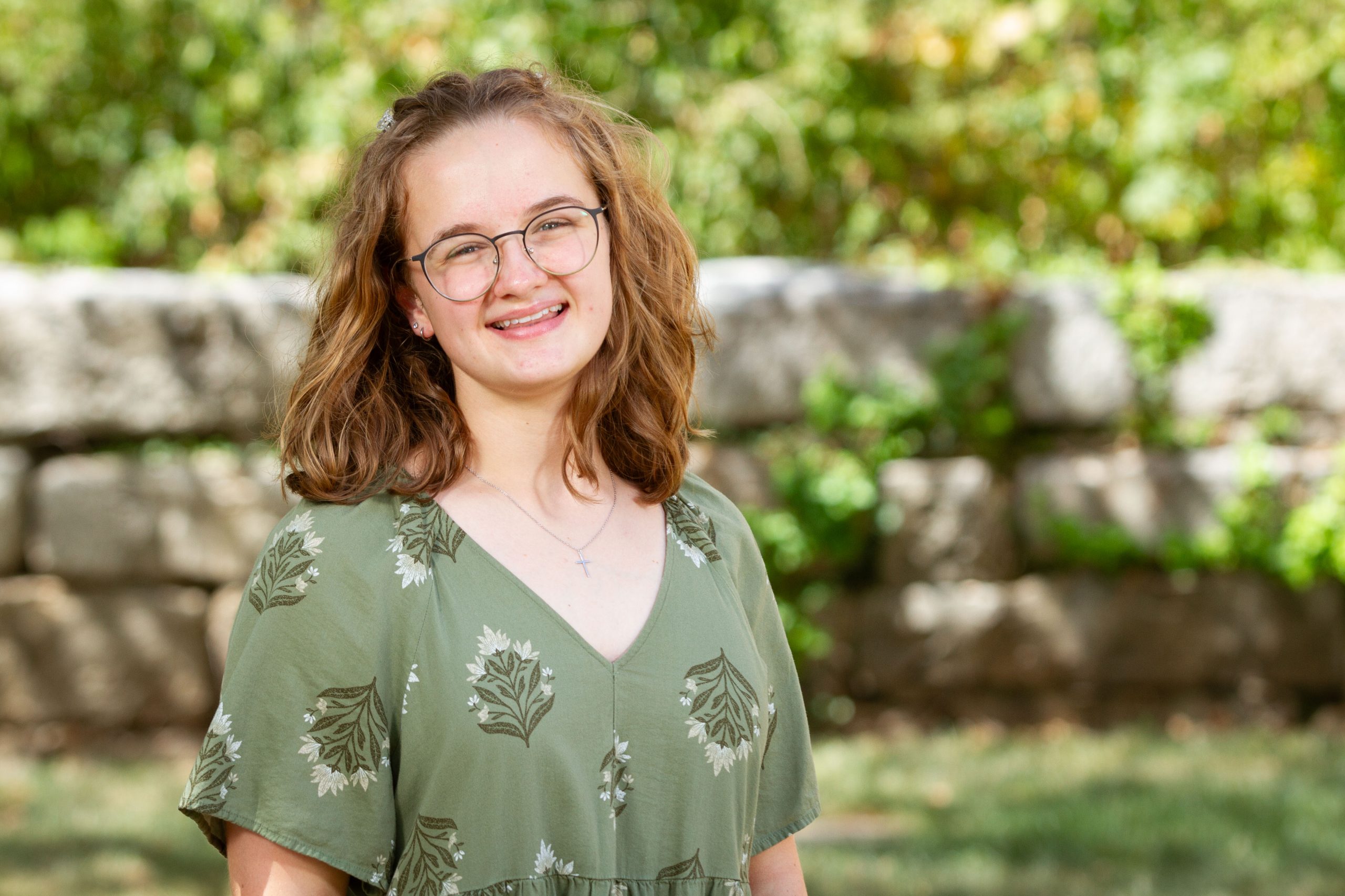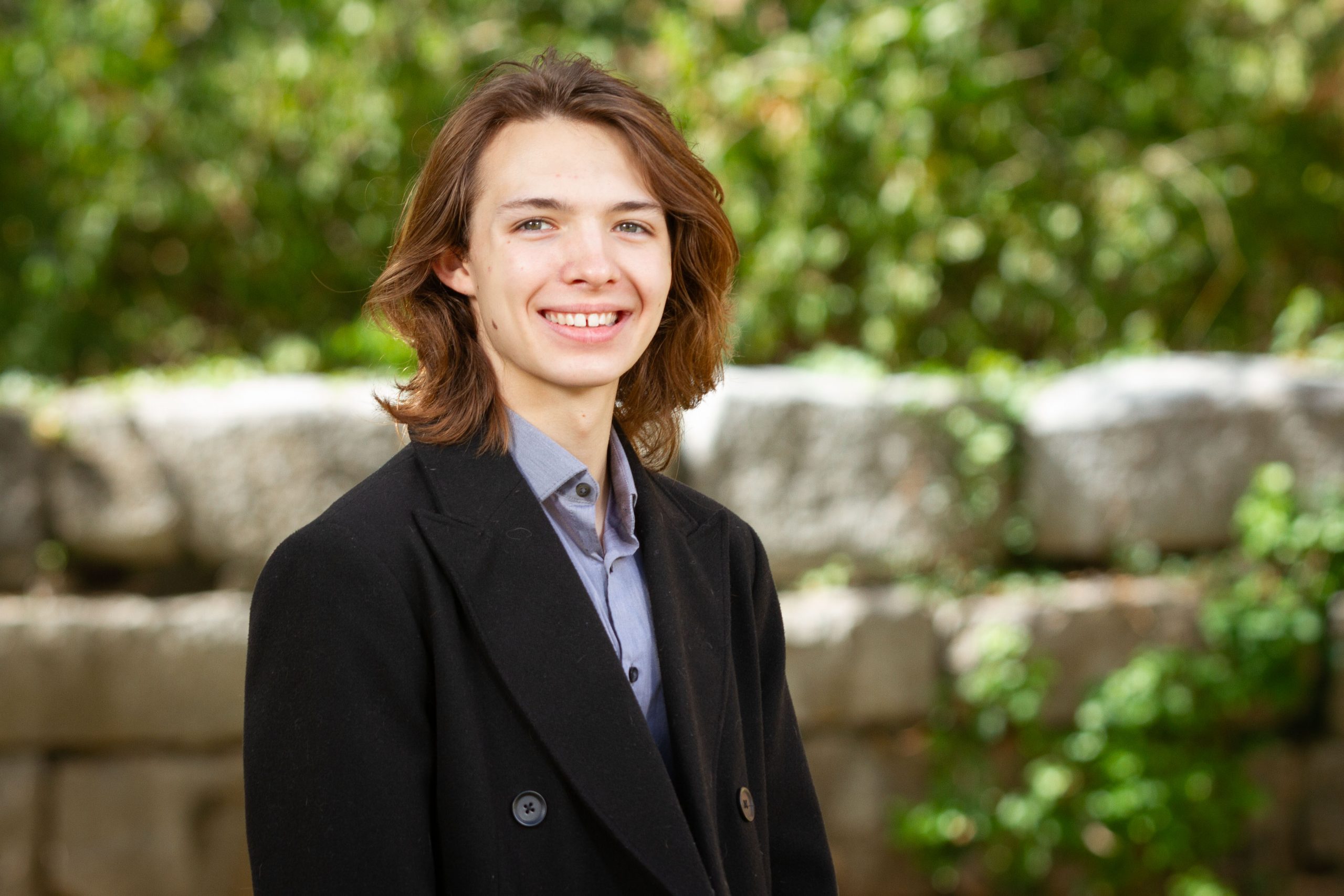Five Gatton Academy Seniors Recognized as National Semifinalists in 2011 Siemens Competition
November 1, 2011 | Academics, News, People, Research, Students, WKU | No Comments
[fblike]
Five second-year students at WKU’s Carol Martin Gatton Academy of Mathematics and Science in Kentucky have been recognized by the Siemens Foundation as national semifinalists in the 2011 Siemens Competition in Math, Science & Technology.
Five second-year students at the Gatton Academy have been recognized as national semifinalists in the 2011 Siemens Competition in Math, Science & Technology. (WKU photos by Clinton Lewis)
Keaton Smith, a senior from Alexandria, was recognized in the individual competition. Andrea Eastes, a senior from Mayfield, and Lydia Brothers, a senior from Madisonville, along with Lori Lovell, a senior from Florence, and Samantha Hawtrey, a senior from Union, were honored in the team category.
As the nation’s leading original research competition in math, science and technology for high school students, the Siemens Competition is administered annually by the College Board, and awards scholarships to students in both individual and team categories.
An all-time record 2,436 students nationwide registered to enter the 2011-12 Siemens Competition for an unprecedented 1,541 projects submitted. Approximately 300 semifinalists were recognized.
Reaching the semifinalist stage of this competition puts any student into an elite crowd of the nation’s top high school-aged researchers. To achieve this accolade, students each committed hundreds of hours outside their course schedules researching, writing their reports and refining drafts with their mentors.
Derick Strode, the Gatton Academy’s coordinator for research, internships and scholarships, said research not only serves as an important part of the Academy experience, but also is the springboard to future pursuits.
“Independent research allows motivated high school students a chance to explore a passion and try out a possible career path,” Strode said. “While young, these students are also proving they are ready to make serious contribution to research questions that affect our society.”
Lori Lovell and Samantha Hawtrey
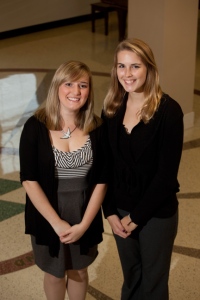 Hawtrey and Lovell’s project, Isolation, Characterization, and Annotation: the Search for Novel Bacteriophage Genomes,stems from their participation in the WKU Genome Discovery and Exploration Program, which is currently sponsored by the Howard Hughes Medical Institute’s (HHMI) Science Education Alliance.
Hawtrey and Lovell’s project, Isolation, Characterization, and Annotation: the Search for Novel Bacteriophage Genomes,stems from their participation in the WKU Genome Discovery and Exploration Program, which is currently sponsored by the Howard Hughes Medical Institute’s (HHMI) Science Education Alliance.Bacteriophages, or viruses that infect bacteria, are the most common DNA-containing entities on earth, yet very few have been characterized. The purpose of the team’s research was to increase knowledge of phage biodiversity by isolating and characterizing two previously unknown phages. Their findings were added to GenBank, the genetic sequence databases administered by the National Institute of Health. To date, 176 of 1,521 mycobacteriophages have been identified, isolated, sequence and eventually catalogued by GenBank.
Research mentor Dr. Rodney King, associate professor of biology and director of the WKU Biotechnology Center, guided the students through the process during the 2010-11 academic year. Dr. King said that Hawtrey and Lovell “demonstrated motivation, responsibility and perseverance throughout the course. These are important qualities for anyone interested in pursuing research and I believe they both have promising futures as researchers.”
Hawtrey sees the benefit of research as far more than just the process and academic outcomes. “Not only does participation in research enable you to apply your knowledge to real problems and gain practical skills, but it can also make a tangible difference,” Hawtrey said. “Most importantly, research is a chance to get involved in something bigger than yourself–something that could one day change the world.”
Lydia Brothers and Andrea Eastes
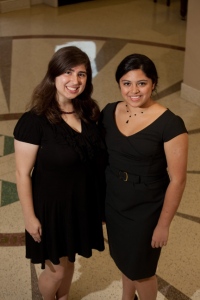 Eastes and Brother’s research, ZBLAN Glass: Improving Medical Imaging with Europium Oped HoF3 and SrCl2 Based Storage Phosphors, was conducted during the seven-week Summer Research Program for High School and Undergraduate Students at the University of Tennessee Space Institute (UTSI) in Tullahoma, Tenn.
Eastes and Brother’s research, ZBLAN Glass: Improving Medical Imaging with Europium Oped HoF3 and SrCl2 Based Storage Phosphors, was conducted during the seven-week Summer Research Program for High School and Undergraduate Students at the University of Tennessee Space Institute (UTSI) in Tullahoma, Tenn.Mammography has been observed as one of the most effective ways to detect breast cancer. ZBLAN glass has the potential to be a substantial improvement over current film imaging methods. The team’s research focused on the glass’s properties, crystalline structure, morphology and photoluminescent qualities. ZBLAN glass could result in higher resolution, contrast and clarity in the mammograms while making screenings more cost-effective. Such improvements could give doctors the ability to diagnose the cancers earlier and more accurately.
Eastes and Brothers were the only high school students selected to participate in the UTSI program, according to research mentor Dr. Jackie Johnson, an associate professor in materials at engineering at UTSI.
“Andrea and Lydia completed the inaugural formal internship course hosted by UTSI this summer as the two youngest in the group,” Dr. Johnson said. “Their contribution, drive, diligence and hard work was far beyond their years and both of them hold great promise as future American scientists.”
That potential is part of a career plan for Brothers. “Research has enriched my Gatton Academy experience by enabling me to have a broader idea of what I want to do as a career,” she said. “I feel that my overall comprehension of the material that I’m learning in class goes up dramatically when I’m actually implementing it in my research. Knowing that the observations I make and the problems I solve have a true, practical application, invigorates me with passion for the sciences, and in particular, my research.”
Keaton Smith
 Smith produced Music Composition with Genetic Algorithms through a Gatton Academy Research Internship Grant for computer science research with Drs. Jeff Ward and Richard Fox of the Northern Kentucky University Department of Computer Science during summer 2011.
Smith produced Music Composition with Genetic Algorithms through a Gatton Academy Research Internship Grant for computer science research with Drs. Jeff Ward and Richard Fox of the Northern Kentucky University Department of Computer Science during summer 2011.The study addresses the complexities of emulating human creativity within computer-based artificial intelligence. Translating inspiration and unorganized thought at the core of human creativity has proven a challenge for programmers. A potential solution is known as a genetic algorithm, which treats the formation of music in an evolutionary manner. Simple music pieces are selected, recombined and mutated over a number of cycles, at which point the best-scoring composition becomes the final output. The technique can also be considered a viable approach to a variety of other AI problems.
Dr. Ward emphasized the role of sponsored research projects as pathways to developing a prepared and engaged workforce.
“Funded student research projects are very important in computer science for attracting excellent students and providing an early opportunity to immerse themselves in the field,” Dr. Ward said. “There is a real shortage of students who are trained in computer science, so research programs like this meet a real need in our society.”
Though Smith has taken multiple courses in computer science and mathematics at the Gatton Academy, he believes that research has opened new possibilities for personal and scientific discovery.
“For me, research has been a great opportunity to explore and make new discoveries in fields which would not be covered in a traditional classroom setting,” Smith said. “Through it, I have gained knowledge about topics to which I might never have been exposed otherwise.”
About the Gatton Academy: The Gatton Academy offers a residential program for bright, highly motivated Kentucky high school students who have demonstrated interest in pursuing careers in science, technology, engineering and mathematics. Sixty students each year are admitted to the program through a competitive process. Instead of spending their junior and senior years in traditional high schools, students enroll in the Gatton Academy and live in a uniquely dedicated residence hall. The goals of the Gatton Academy are to enable Kentucky’s exceptional young scientists and mathematicians to learn in an environment that offers advanced educational opportunities and to prepare them for leadership roles in Kentucky. At the end of two years, Gatton Academy students will have earned at least 60 college credit hours in addition to completing high school. In 2011, Newsweek magazine ranked The Gatton Academy fifth nationally among all public high schools part of their annual “America’s Best High Schools” listing.
About the Siemens Foundation: The Siemens Foundation provides more than $7 million annually in support of educational initiatives in the areas of science, technology, engineering and mathematics (STEM) in the United States. Its signature programs include the Siemens Competition in Math, Science & Technology, Siemens Awards for Advanced Placement, and The Siemens We Can Change the World Challenge, which encourages K-12 students to develop innovative green solutions for environmental issues. By supporting outstanding students today, and recognizing the teachers and schools that inspire their excellence, the Foundation helps nurture tomorrow’s scientists and engineers. The Foundation’s mission is based on the culture of innovation, research and educational support that is the hallmark of Siemens’ U.S. companies and its parent company, Siemens AG.
Contact: Corey Alderdice, (270) 745-2971.
HHMI, NKU, Northern Kentucky University, research, Science Education Alliance, Siemens Competition, University of Tennessee Space Institute. UTSI, WKU Genome Discovery and Exploration Program